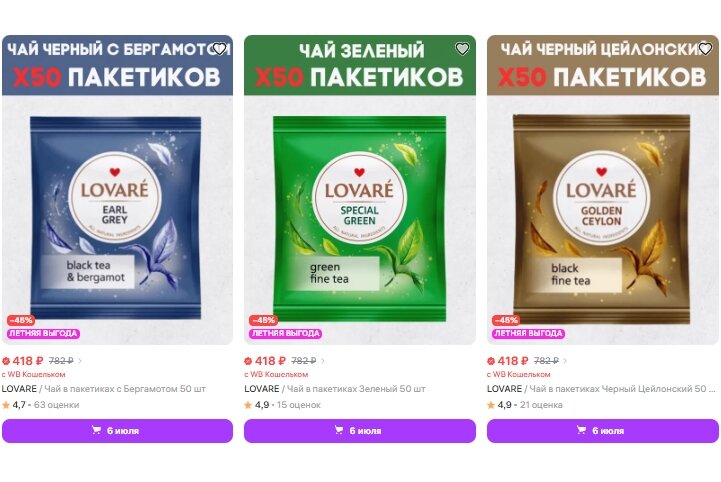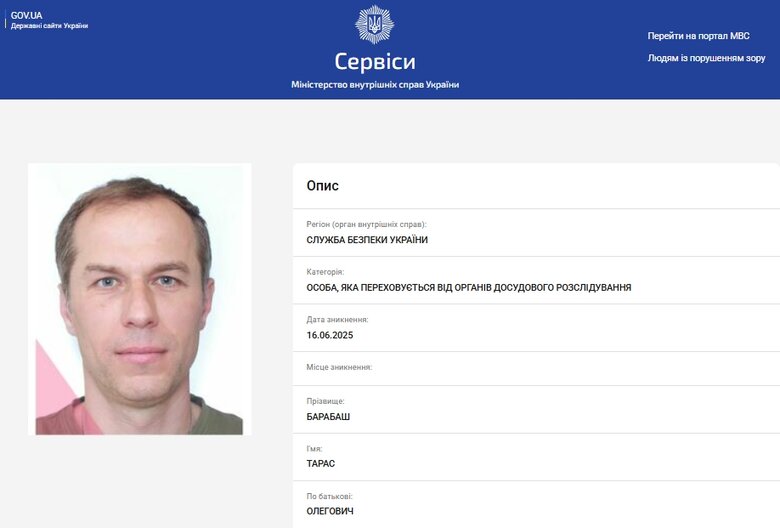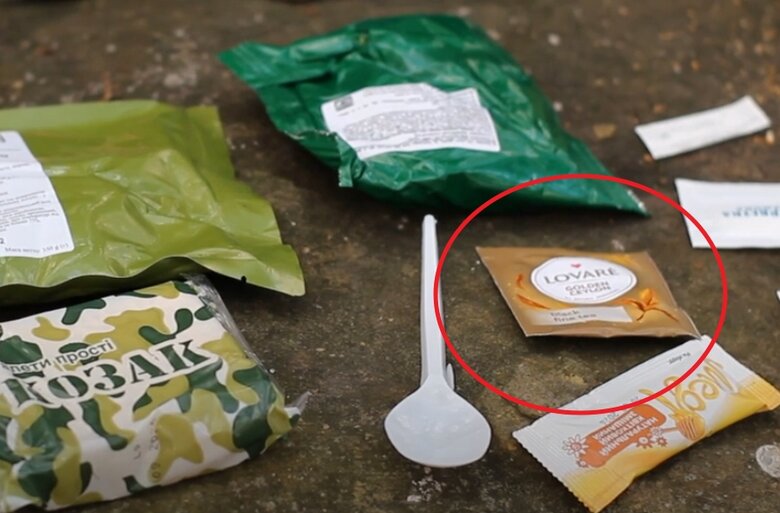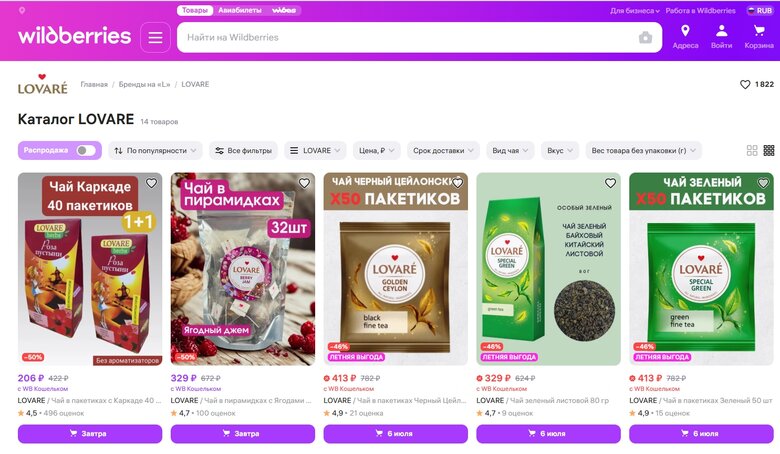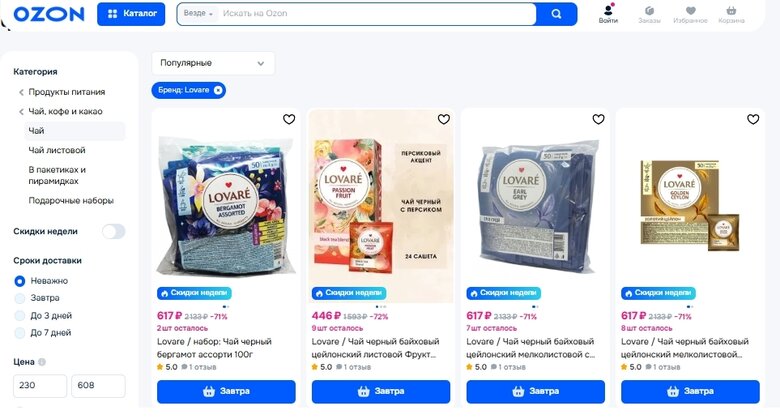LoWARe: How Ukrainian company Monomakh sold tea to both Ukrainian Armed Forces and Russians at same time
One of Ukraine’s largest tea and coffee producers supplies its products to the Armed Forces. At the same time, the Security Service of Ukraine (SSU) has placed the company’s owner on the wanted list in a case involving aiding the aggressor state. Business Censor set out to investigate how this situation came to be.
"Monomakh" is one of the oldest tea suppliers in Ukraine. Since the early 1990s, the company has been importing packaged tea and coffee from various producers worldwide, but later built its own packaging factory near Kyiv, in the village of Velyka Dymerka, Brovary district.
According to its website, the company currently produces products under the brands "Monomax," "Lovare," "Stefano," "Ferarra," "Three Elephants," "Tea Masterpieces," "Coffee Masterpieces," and others.
According to the YouControl system, as of the end of last year, the owners of JSC Monomakh were Bohdan Olehovych Barabash (60.05%) and Taras Olehovych Barabash (39.94%).
The company's revenues have grown significantly in recent years: from UAH 0.95 billion in 2021 to UAH 1.2 billion in 2023, UAH 1.8 billion in 2023 and UAH 2.3 billion in 2024.
However, it turned out that the owners of the Ukrainian manufacturer decided not to give up their earnings in Russia, despite the full-scale war it unleashed.
According to the court register, on June 10, SSU conducted searches at the offices of "Monomakh" and at several company employees. The company's accountant was notified of suspicion, while its co-owner, Taras Barabash, was declared wanted by the SSU. According to the Ministry of Internal Affairs website, the businessman was reported missing as of June 16.
What the owner of the tea manufacturer "Monomakh" and Lovare is suspected of
Documents published in the court register over the past week allow outlining the circumstances of the case that the SSU began investigating in August 2024 under Part 2 of Article 28 and Part 1 of Article 111-2 of the Criminal Code (Aiding a state-aggressor, committed by a group of persons by prior conspiracy).
According to the investigation, since at least 2018, the Ukrainian company "Monomakh" exported products made in Ukraine to Russia and Belarus. However, after the start of Russia’s full-scale aggression in February 2022, the Cabinet of Ministers and the National Bank banned any business activities and foreign currency transactions with Russia and its residents.
In turn, President Volodymyr Zelenskyy issued a number of decrees imposing sanctions on individuals and legal entities that conduct business with or assist the aggressor state in any way, according to court documents.
However, according to the investigation, the co-owner of Monomakh decided not to give up business in Russia and organised a scheme to supply products to the aggressor country by way of hidden transit through Poland to Belarus, and from there to Russia.
The names of the individuals involved are concealed in the court documents; however, a source from law enforcement confirmed to Business Censor that the case concerns Taras Barabash, who has already been declared wanted by the SSU. The investigation claims that he involved Monomakh’s accountant, Viktoriia Polovko, as well as the head of the company’s export sales department, Oleksandr Leonov, in organizing the scheme. Leonov is registered as the owner of the company Lovare Sp. z o. o. in Poland, and an email bearing his surname, [email protected], is currently listed in the contact details on the company’s website.
At the same time, Leonov is the director of the Belarusian company Natur Technologies, according to investigators. This company is officially registered in Belarus for at least one of the Lovare tea trademarks, and it also registered the rights to the brands used by Monomakh in Russia.
Officially, the Belarusian business is registered under the Cyprus-based IPC TEA and Coffee and Packing CO Ltd and Oleksandr Leonov himself. However, according to sources within law enforcement agencies, the actual owner is Bohdan Barabash, and the Belarusian company under his control still holds valid Rospatent (Russian Federal Service for Intellectual Property) certificates for ownership of the "Monomakh" brands in Russia.
Thus, the products manufactured in Ukraine were exported by the scheme’s organizers to Poland, addressed to the company "Lovare Sp. z o. o.", after which they were supplied to the Belarusian company "Natur Technologies," and subsequently sold to Russian companies for distribution on the Russian market.
Specifically, SSU investigators managed to document the entire supply chain delivering products to the Russian LLC "LDK," which operated at least until May 2024, according to the case materials. In the customs invoices issued by the Russian company, the country of origin for the tea and coffee branded by the Ukrainian manufacturer was listed as Ukraine, and in some cases Belarus.
Investigators are convinced that the scheme’s organizers knowingly violated Ukrainian law during the full-scale war.
"The aforementioned individuals understood that they could carry out the specified activities only in cooperation with the aggressor state, including through paying taxes to the Russian Federation’s budget and supplying goods to its territory, which would constitute the transfer of material resources and assets to representatives of the aggressor state. They were also fully aware that these actions were illegal and would cause harm to Ukraine," — the investigator’s position stated in the court materials.
Documents published in the court register show that the Solomianskyi District Court of Kyiv found the SSU’s arguments convincing and ordered the seizure of a smartphone and laptop taken during a search from Monomakh’s accountant. At the same time, the judge refused to impose pretrial detention and placed her under 24-hour house arrest.
How to supply tea for both the Russians and the Ukrainian Armed Forces
Thanks to the ban on several Russian brands that previously held up to 40% of the tea market in Ukraine, the revenue of JSC "Monomakh" has more than doubled in recent years, exceeding UAH 2.3 billion last year, according to YouControl data. Currently, the company’s market share in Ukraine is estimated to exceed 25%.
According to the company itself, besides producing products under its own brands, "Monomakh" cooperates with 80% of retailers in Ukraine (including ATB, METRO, Fozzy Group, Auchan, Novus), supplying them with tea and coffee under their private labels.
Specifically, products under private labels for chains such as ATB ("Rozumnyi Vybir," "Svoia Liniia"), Metro ("Aro," "Rioba"), and Varus ("Varto") are manufactured at Monomakh’s facilities. Additionally, the company’s factory packages products under the brands of other well-known suppliers.
According to sources among Ukrainian retailers, taking into account both own brands and private labels, up to 90% of Monomakh’s sales in major chains are tea. The largest share, about one-third, is secured by Ukraine’s largest supermarket chain ATB (approximately UAH 700 million in 2024), followed by Metro, Varus, Silpo, Velyka Kyshenia, Auchan, and Novus by a wide margin.
According to the Dozorro system, which tracks public procurement, in addition to supermarkets and shops across Ukraine, Monomakh also actively supplies products under government contracts to Ukrzaliznytsia, hospitals, the National Guard and military units of the Armed Forces of Ukraine.
Moreover, Monomakh has also earned money by supplying tea for the dry rations purchased for the Ukrainian military.
During the last procurement of this year, the State Operator for Non-Lethal Acquisition ordered daily field food kits containing tea from other manufacturers. However, Ukrainian servicemen still receive rations that include tea under the trademarks of the company "Monomakh," NV Business reported in April of this year.
In Ukraine, "Monomakh" positions itself as a patriotic company supporting the Armed Forces of Ukraine. For example, at the beginning of 2023, it announced the launch of a charity program to donate its own tea products to Ukrainian soldiers.
However, in the spring of 2023, Monomakh was included in the list of Ukrainian producers that continue to supply their products to Russia. The Russian media were surprised to learn that, despite the full-scale war, about 40 different types of Lovare tea and Ferarra coffee could be found in Russian stores and marketplaces.
Moreover, goods under the Ukrainian manufacturer's brands can still be found on Russia's largest marketplace, Wildberries, which collects money from customers and pays taxes to the budget of the aggressor state.
President Volodymyr Zelenskyy enacted the National Security and Defence Council's decision to impose sanctions on this company in July 2021, and the conflict between its owners involving Chechen leader Ramzan Kadyrov and the entourage of influential billionaire Suleiman Kerimov was personally resolved last year by Russian dictator Vladimir Putin.
Tea under the Ukrainian brand Lovare can still be found on another popular Russian marketplace, Ozon, whose main owner is AFK "Sistema," controlled by Russian oligarch Yuriy Kovalchuk, a member of Putin’s inner circle.
Of course, it’s worth remembering that some international companies still try to sell their products both in Ukraine and in Russia, even though hundreds of global brands have exited the Russian market since the start of the full-scale war. However, Ukrainian entrepreneurs need to understand that sitting on two chairs at once won’t work. Not only because it’s at least hypocritical, but also due to the criminal liability prescribed by law.

